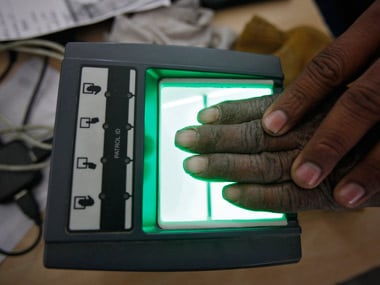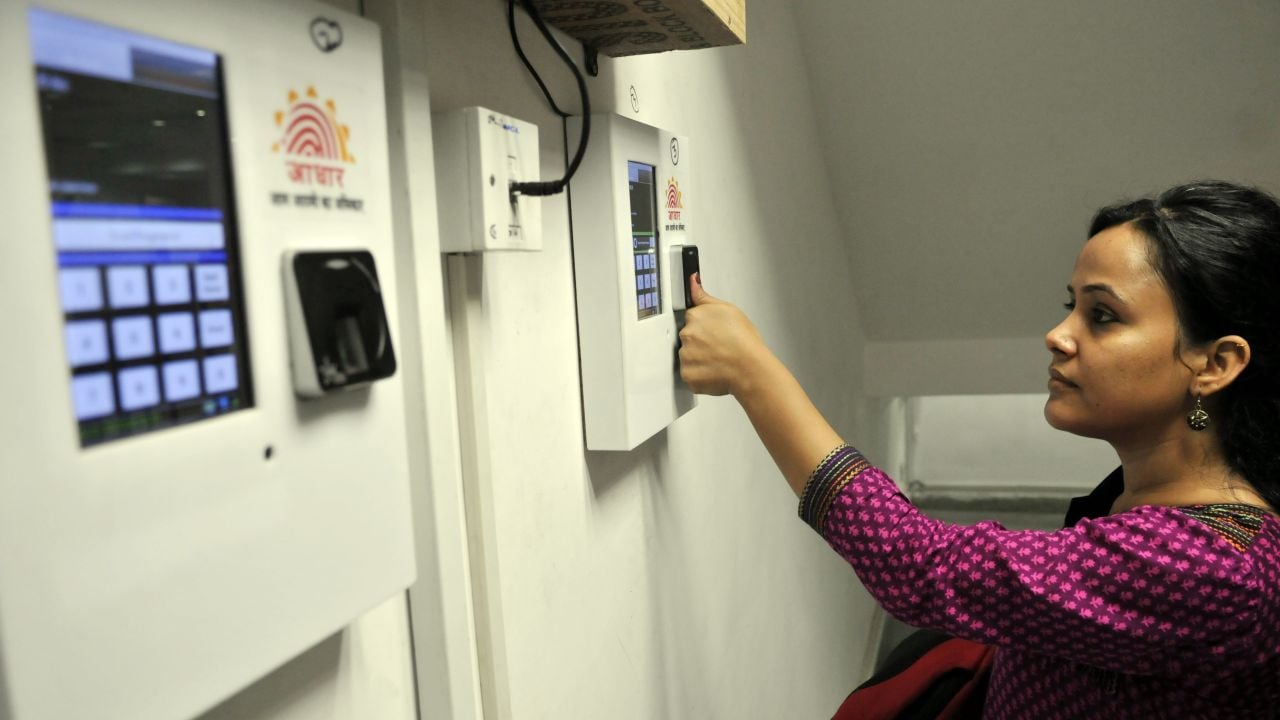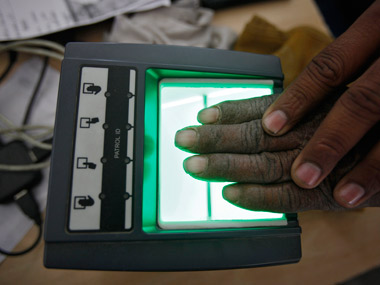On Day 26 of Aadhaar hearings , Attorney General KK Venugopal concluded his arguments for the State, arguing that the privacy invasion via Aadhaar is minimal and is within the reasonable expectation of privacy requirement. Next, Additional Solicitor General Tushar Mehta commenced his arguments on the Aadhaar-PAN linkage under Section 139AA of the Income Tax Act. [caption id=“attachment_4291505” align=“alignleft” width=“380”]  Representational image. Reuters[/caption] He argued that this offers significant advantages, such as enabling deduplication, preventing fraud and widening of the tax base. Further, this section had in effect been cleared of privacy tests through the Binoy Viswam judgement followed by the Puttaswamy judgement. Informed consent under Aadhaar enrolment forms The Attorney General first argued that Section 59 of the Aadhaar Act grants retrospective validity to governmental acts prior to the passing of the Act. Next, he turned to the issue of the voluntary nature of Aadhaar enrolment and consent. The current Aadhaar enrolment form was shown to the Court, which states that Aadhaar enrolment is free and voluntary. Further, it was stated that the enrolment form contained the requisite provisions for informed consent. The Bench, however, pointed to the fact that the first two enrolment forms did not contain provisions on the issue of collecting biometrics, which is a key factor to establish informed consent of the people for their collection. The Attorney General argued that the first two forms were hardly used, since then the enrolment of only 1 crore individuals had been mandated. The state collects biometrics for individual’s benefit alone Arguing further on the issue of informed consent, the Attorney General next discussed the extent of the invasion of privacy caused by Aadhaar. He cited the instance where the CBI approached the Bombay High Court to obtain biometrics from the UIDAI in connection with an investigation, which the UIDAI refused to do without the individual’s consent. The Attorney General argued that the State had no interest in collecting biometrics except for the benefit of the individual himself. Government’s actions taken in the absence of the right to privacy Next, he argued that even when there was no right to privacy, the government acted in a bona fide manner in enacting Aadhaar. This action, he argued, could not be made void by retrospective action. To this, the Bench cited the several judgements affirming the right to privacy prior to the Puttaswamy judgment, stating that while privacy was an irrelevant question in the MP Sharma case, the Kharak Singh case , had affirmed that there was a right to privacy. Subsequent judgements, they stated, had relied on this affirmation to establish the right to privacy. The Attorney General, however, did not agree with this interpretation. The reasonable expectation of privacy Lastly, the Attorney General cited discussions in the Puttaswamy judgement on an individual’s reasonable expectation of privacy, this was to be judged taking into consideration the ‘totality of circumstances’, which includes the ‘nature of privacy interests implicated by state action’, and ‘factors more directly concerned with the expectation of privacy, both subjectively and objectively viewed, in relation to those interests’. The Attorney General argued that Aadhaar met this requirement and that the invasion of privacy was minimal. Aadhaar-PAN linkage addressed in Binoy Viswam judgement Next, Additional Solicitor General Tushar Mehta commenced his arguments on the Aadhaar Pan linkage, arguing that these issues had already been dealt with extensively by the Supreme Court with respect to Articles 14 and 19 of the Constitution in the Binoy Viswam case . On the remaining issue of the right to privacy, he stated that in the Puttaswamy judgement, it was held that privacy could be subject to reasonable restrictions. [caption id=“attachment_4291519” align=“alignnone” width=“1280”]  Biometric authentication of Aadhaar. Image: Getty[/caption] Tests to be met for a law to be invalid He argued that for a law to be invalid, it must fail the tests of proportionality or manifest arbitrariness, and Section 139AA of the Income Tax Act, which enables Aadhaar PAN linkage, had been cleared by the Supreme Court of these two tests with respect to Article 19. A valid ground of restriction, he argued, was of larger public interest, and this could be found through the benefits of Section 139AA in preventing income tax fraud, black money, and terrorism. Demographic information of PAN holders being collected since 1989 Next, he argued that since 1989, obtaining a PAN number was mandatory, and demographic information that is now being collected under Section 139AA was already being collected then, including the collection of the left hand’s thumb impression. The Bench, here, pointed out that this was only collected for people who could not sign. Further, it was taken only on the form, and there was no authentication at the time. To this, the Additional Solicitor General submitted that his argument was that with respect to the issue of privacy, this regime had already been in place since 1989. The deduplication advantage of Aadhaar-PAN The requirement of Aadhaar, he further argued, was to ensure deduplication through a robust technological regime. Aadhaar, being unique and with almost 99 percent coverage, the deduplication is more systematic. Further, almost 11.35 lakh fake PAN cards had been found. Multiple PAN cards, he argued, enabled money laundering, tax fraud and shell companies. Ensuring only one PAN per individual via Aadhaar could resolve this. The use of biometrics, further, will prevent the forging of IDs, as was previously done to obtain Aadhaar. Duplicate Aadhaars, he stated, were almost non-existent. The Additional Solicitor General then read out various factors to show issues which Aadhaar PAN linkage could resolve — such as the instance of the creation of 3,000 fake demat accounts using photographs of others and the difference between the number of PAN cards and the tax base. The Court, here, observed that this difference may not be due to duplicates alone since PAN cards are nowadays required for various purposes. Further, the same ingenuity which was seen with PAN-based frauds can also happen with Aadhaar. The Additional Solicitor General, to this, stated that no system was foolproof, and efforts were being made to make it better. He further discussed the tax to GDP ratio, which is very low. He argued that ours is a non-tax compliant society, made possible through the predominance of cash. Binoy Viswam and Puttaswamy judgements together clear Section 139AA He further argued that even though the Supreme Court had not dealt with the issue of privacy in the Binoy Viswam judgement, all the tests for testing privacy violations had been applied by the Court. Further, the Puttaswamy judgement, in effect, retrospectively ratifies the Binoy Viswam judgment. The arguments will continue on 11 April. Sources of the arguments include live-tweeting of the case by SFLC.in and Gautam Bhatia. You can read out coverage of the Aadhaar Supreme Court case below. **Why SC needs to look into technical evidence of Aadhaar’s surveillance capabilities** **Lack of governmental ownership of CIDR’s source code can have serious consequences** Will State give citizens rights only if they agree to be **tracked forever, asks lawyer Shyam Divan** Coalition for Aadhaar: A collective of private companies wants to ensure that Aadhaar ID and related services continue to be offered Petitioners argue on centralisation of data and challenge Aadhaar’s claims on savings **Petitioners argue for a voluntary ID card system that does not collect user data** **Petitioners argue that receipt of govt benefits cannot be at the cost of compromising fundamental rights** **Aadhaar is architecturally unconstitutional, argue the petitioners** **Petitioners argue that Aadhaar violates dignity by objectifying and depersonalizing an individual** Petitioners seek compensation for starvation deaths and extension of March 31st deadline **Section 7 exception in Supreme Court’s interim order greatly affects people’s constitutional rights** **Entire Aadhaar project is beyond the stated objectives of Aadhaar Act, argue petitioners** **Petitioners conclude their arguments on 'the number of the beast' Aadhaar, highlighting various issues** **Aadhaar hearing: Political liberties cannot be foregone for economic and social justice, states the Bench** **Aadhaar hearing: UIDAI’s presentation discusses Aadhaar enrolment, updation and authentication processes in detail** Aadhaar hearing: Supreme Court expresses concerns with data breaches, Aadhaar security and profiling Aadhaar hearing: Petitioners question UIDAI on verification of residency requirement, de-duplication rejections and authentication failures **Aadhaar hearing: Attorney General argues that pervasive collection of fingerprints meets proportionality requirements** Aadhaar hearing: Bench criticises the argument that Aadhaar can prevent bank frauds and terrorists from acquiring mobile numbers The author is a lawyer and author specialising in technology laws. She is also a certified information privacy professional.
Additional Solicitor General Tushar Mehta commenced his arguments on the Aadhaar-PAN linkage under Section 139AA of the Income Tax Act.
Advertisement
End of Article


)

)
)
)
)
)
)
)
)



